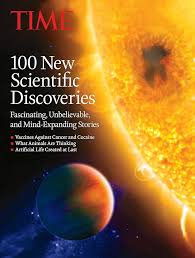The Latest Discoveries in Science
Science continues to push the boundaries of human knowledge, revealing new insights and discoveries that shape our understanding of the world around us. In recent months, several groundbreaking discoveries have captured the attention of researchers and the public alike.
Quantum Computing Breakthrough
Scientists have made significant progress in the field of quantum computing, with recent breakthroughs paving the way for faster and more powerful quantum computers. These advancements hold the potential to revolutionise industries such as cybersecurity, drug discovery, and weather forecasting.
Exploration of Mars
The exploration of Mars has yielded exciting findings, including evidence of ancient microbial life preserved in Martian rocks. Researchers are also studying the planet’s geology and atmosphere to gain insights into its past and potential habitability.
Climate Change Research
Scientists are actively researching climate change to better understand its causes and effects. Recent studies have highlighted the urgent need for action to mitigate the impact of global warming on our planet’s ecosystems and populations.
Genetic Engineering Advancements
Advancements in genetic engineering have opened up new possibilities for treating genetic diseases and enhancing crop resilience. Researchers are exploring gene-editing techniques that could revolutionise healthcare and agriculture in the coming years.
These are just a few examples of the latest discoveries in science that are shaping our world and driving innovation across various fields. As scientists continue to push boundaries and explore new frontiers, we can expect even more exciting breakthroughs in the future.
Unveiling Wonders: Six Groundbreaking Scientific Discoveries
- Scientists have discovered a new species of dinosaur in Argentina, named Llukalkan aliocranianus.
- Astronomers have found evidence of a giant planet orbiting a white dwarf star, challenging existing theories of planetary formation.
- Researchers have identified a new organ in the human throat called the tubarial salivary glands.
- A study suggests that octopuses can edit their RNA, which could explain their unique abilities and intelligence.
- Scientists have developed a new type of plastic that can be recycled indefinitely without losing quality.
- Recent studies show that honeybees can understand the concept of zero, which is considered an advanced cognitive ability.
Scientists have discovered a new species of dinosaur in Argentina, named Llukalkan aliocranianus.
In a remarkable discovery, scientists have unearthed a new species of dinosaur in Argentina, known as Llukalkan aliocranianus. This finding sheds light on the rich prehistoric diversity of the region and offers valuable insights into the evolution and characteristics of these ancient creatures. The identification of Llukalkan aliocranianus represents a significant milestone in palaeontology, highlighting the ongoing exploration and discovery of Earth’s fascinating history through the study of fossils and remains.
Astronomers have found evidence of a giant planet orbiting a white dwarf star, challenging existing theories of planetary formation.
Astronomers have recently made a groundbreaking discovery by finding evidence of a giant planet orbiting a white dwarf star. This revelation challenges existing theories of planetary formation and opens up new possibilities for understanding the complex dynamics of celestial bodies in our universe. The presence of such a planet in close proximity to a white dwarf star raises intriguing questions about the evolution and interactions of planetary systems, pushing the boundaries of our knowledge in the field of astronomy.
Researchers have identified a new organ in the human throat called the tubarial salivary glands.
Researchers have recently made a groundbreaking discovery in human anatomy by identifying a previously unknown organ in the throat known as the tubarial salivary glands. This finding has sparked intrigue and excitement within the scientific community as it sheds new light on the complexity of the human body’s structure. The identification of this organ could have significant implications for various medical fields, potentially leading to advancements in treatments and surgical procedures involving the throat region.
A study suggests that octopuses can edit their RNA, which could explain their unique abilities and intelligence.
A recent study has put forward a fascinating proposition that octopuses possess the ability to edit their RNA, shedding light on the mystery behind their remarkable capabilities and intelligence. This discovery opens up new avenues for understanding the complex biological mechanisms that underpin the cognitive prowess of these enigmatic creatures. By being able to modify their genetic material in this way, octopuses may have evolved unique adaptive strategies that have contributed to their evolutionary success in diverse marine environments. Further research into this phenomenon could provide valuable insights into the genetic basis of intelligence and behaviour in not just octopuses but potentially other species as well.
Scientists have developed a new type of plastic that can be recycled indefinitely without losing quality.
Scientists have achieved a remarkable milestone in the realm of sustainability by creating a novel type of plastic that boasts the ability to be recycled endlessly without compromising its quality. This breakthrough holds immense promise for combating plastic pollution and reducing our reliance on virgin plastics derived from fossil fuels. By developing recyclable plastics that can be reused indefinitely, researchers are paving the way for a more environmentally friendly future where waste is minimised, and resources are conserved.
Recent studies show that honeybees can understand the concept of zero, which is considered an advanced cognitive ability.
Recent studies have revealed a fascinating insight into the cognitive abilities of honeybees – they can grasp the concept of zero. This discovery challenges traditional notions of animal intelligence and highlights the remarkable capabilities of these tiny creatures. The ability to understand the concept of zero is considered a significant milestone in cognitive development, and it sheds light on the complex thinking processes that honeybees are capable of. This finding not only deepens our understanding of the intellectual capacities of bees but also underscores the importance of continued research into the intricate workings of the natural world.

